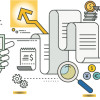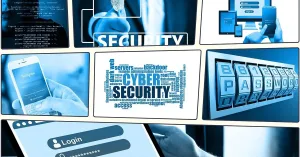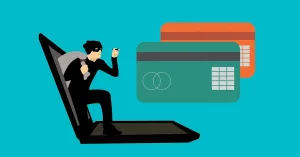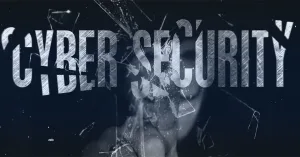
Let's face it; there is no way around online banking, and we wouldn't want there to be. All businesses and most consumers now handle their banking online, due to the convenience and efficiency it affords us. However, just as there is no way around the trend toward handling our finances online, unfortunately there seems to be no way around cyber crime. According to a Global Economic Crime Survey, Cyber crime has climbed to the 2nd most reported economic crime and affects 32% of organizations.
E-banking platforms are a particular favorite of criminals as these transactions are 1) carried out over the internet which exposes them to these criminals’ methods of attack and malware tools; and 2) these transactions are specifically financial in nature and can thus be ascertained for fraud faster.
It is truly scary how online criminals have access to a variety of tools and means to crack the security measures a company. The most basic of these is phishing and has since then involved to include malware, which masquerades as harmless or even helpful software programs. In order to fully arm and protect yourself and your business from such attacks, it’s important to familiarize yourself with their mode of attack and how they are done:
- Social engineering. These attacks rely heavily on human interaction and seek to manipulate and mislead the user.
- Listening and/or capturing devices--yes, there are actually tools cyber criminals use that can listen or intercept transactions between a client and a server. Once done, it’s as simple as an attacker intercepting your login credentials or credit card information or directing you to a fraudulent website that can steal those sensitive information.
- Browser intrusions--These attacks can intercept your transactions and modify the details such as the payee and amount of money to be transferred.
Best Online Practices to Keep Your Company Safe from Cyber Crime
In order to make sure you are doing all you can to keep your business safe from online criminals, below we have listed a few best online practices to use:
- Dedicate a computer for online transactions. If possible, use only a single, well-maintained machine for all your company’s online transactions. This machine should have the highest restrictions, meaning sites other than what is required to carry out the financial transactions should be screened by your firewall rules or by the IT system. This computer should also be regularly maintained and swept for malware.
- Implement multi-layer transaction controls. Online banking platforms for enterprises typically allow varying levels of security to be granted to authorized users. Make sure that these only go to the necessary employees. At the same time, create a system that requires two people to authorize or approve a transaction. This fundamental technique will not only lessen the risks of your organisation falling prey to cyber fraud, it also protects you from employee fraud.
- Comply with your bank’s minimum security requirements. Typically, this means installing and maintaining anti-virus programs as well as ensuring that your operating system remain up-to-date with the latest security patches. Ensure that the browser you use to access your online banking platform are equipped with the right encryption tools.
- Train your employees. You might have secure systems in place but if the people behind these systems are not aware of security risks, all of it will be for naught. Fight against social engineering attacks by equipping yourself and your employees with the means to fend of social engineering and phishing attacks. Put up reminders around your office such as warning against opening unsolicited URLs, never giving out their personal and company information, and always logging out of sites and systems. It’s also important to regularly invite experts to give cyber security talks. If you don’t have an IT personnel equipped to do so, you can always invite industry experts or consultants. What’s important is to educate and equip your employees.
- Consider outsourcing. Outsourcing certain tasks can increase security for your company. How? Security breaches oftentimes happen due to human error — employees seeking shortcuts thinking it might make them more efficient. Help your employees, especially those handling sensitive security and finance tasks, focus on their chief duties by outsourcing non-core tasks to experts, cutting the risks of shortcuts and slip-ups.




















Add comment